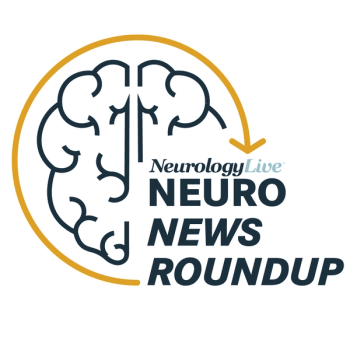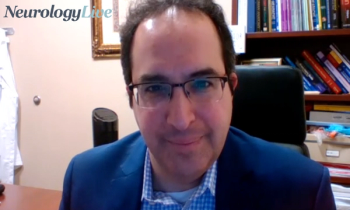
Cynthia Tsai, MD, PhD, assistant professor of neurology at National Taiwan University College of Medicine, shared her clinical viewpoint on findings from a study presented at ISC 2024 using amyloid PET scans to differentiate between CAA and AD.

Isabella Ciccone, Content Associate, NeurologyLive®, has been with the team since September 2022. Follow her on X @iciccone7 or email her at [email protected]

Cynthia Tsai, MD, PhD, assistant professor of neurology at National Taiwan University College of Medicine, shared her clinical viewpoint on findings from a study presented at ISC 2024 using amyloid PET scans to differentiate between CAA and AD.

In a recent study presented at ISC 2024, results revealed that patients who used assisted reproductive technologies therapy during hospitalization for delivery had a higher risk of stroke than those who did not use such therapies.

Eleonora Tornatore-Mikesh, chief executive officer of CaringKind, The Heart of Alzheimer's Caregiving, and an anonymous caregiver, spoke about their perspective with caring for a loved one who has been diagnosed with Alzheimer disease.

The director of neurocritical care and emergency neurology services at Westchester Medical Center Health System discussed the call for a paradigm shift in stroke care with a focus on intracerebral hemorrhage.

A recent study showed anticoagulation reduced ischemic stroke risk in patients with cervical artery dissection; however, cautioned is warned about the importance of transitioning to antiplatelet therapy at a certain point.

A recent study highlighted the elevated risk of liver diseases, particularly hepatic encephalopathy, in veterans with dementia who lacked a cirrhosis diagnosis.

Nananda Col, MD, MPH, MPP, FACP, the president and founder of Shared Decision Making Resources, spoke about usage of the MS-SUPPORT tool in a recent study to foster shared decision-making between patients and clinicians in multiple sclerosis.

A recent study delved into the epilepsy and developmental patterns of STXBP1-related disorders, showing distinct trajectories and treatment insights for this common genetic epilepsy disorder.

Encoded Therapeutics plans to initiate clinical trials assessing its gene therapy candidate ETX101 for the treatment of SCN1A+ Dravet syndrome during the first half of 2024.

Harmony Sierens, MD, medical director of the Inpatient Rehabilitation Unit at Ascension Genesys Hospital, discussed the importance of having comprehensive, personalized care from a multidisciplinary team to navigate the challenges of poststroke life.

Patients from higher-income zip codes exhibited a higher incidence of withdrawal of life-sustaining therapies and mortality, according to a recent retrospective study.

A panel of stakeholders formed new guidelines for improving care in specialized epilepsy centers, providing a resource for clinicians in the field for quality care to their patients.

In a recent open-label trial, utilization of focused ultrasound to open the blood–brain barrier combined with infusions of aducanumab decreased amyloid-β levels.

A recent review revealed critical components, including cognitive restructuring and third-wave strategies, that enhance the effectiveness of cognitive behavioral therapy for insomnia.

An online shared decision-making tool showed feasibility in most patients with multiple sclerosis, with reported improvements in understanding treatment options and adherence to treatment.

The professor in the department of neurology with McGovern Medical School at UTHealth Houston discussed outcomes of a recent study exploring the specificity of T cells in the spinal fluid of patients diagnosed with multiple sclerosis.

A recent study demonstrated that concomitant sleep apnea syndrome may expedite cognitive decline, particularly in attention and concentration, among patients with multiple sclerosis.

Take a look at some of the most-anticipated FDA pending approvals expected in 2024 that researchers and clinicians in neurology should keep an eye out on.

Takeda's FDA-approved Gammagard Liquid can be used as induction therapy, which includes an induction dose followed by maintenance doses, for adults with chronic inflammatory demyelinating polyneuropathy.

As part of our monthly clinician spotlight, NeurologyLive® highlighted rare disease medicine expert Paula Barreras, MD, a physician neurologist and neuroimmunologist at Cedars Sinai Medical Center.

In recent news, Health Canada approved inebilizumab for adult patients with neuromyelitis optica spectrum disorder who are anti-aquaporin-4 antibody positive, using results from the N-MOmentum trial as the basis for the approval.

A recent analysis revealed a reduction in regulatory lymphocyte subsets in patients with NMOSD before tocilizumab therapy, with subsequent restoration to normal levels after 1 year treatment.

In a recent case study, clinical exome sequencing exposed a heterozygous missense mutation in the ITPR1 gene where patients showed craniofacial abnormalities as well as spinocerebellar ataxia-like syndrome.

A recent study showed a more than 75% reduction in migraine frequency in participants with comorbid multiple sclerosis when treated with calcitonin gene-related peptide monoclonal antibodies.

A new study reported on a small family who experienced paroxysmal ataxia as the initial manifestation of FGF14 repeat expansion, triggered by certain factors between the ages of 45 and 50.

In a recent study, investigators observed a substantial up-regulation of long noncoding RNAs among patients with neuromyelitis optica spectrum disorder in comparison with heathy individuals.

In a study cohort, investigators observed the frequency of FGF14 GAA repeat expansions in 17 patients, prompting the inclusion of GAA-FGF14-related disease in the differential diagnosis of ataxia related syndromes.

A recent study demonstrated the superior efficacy of a dual-task training program over traditional physical therapy in improving balance and cognitive function in pediatric patients with ataxia following medulloblastoma resection.

The director of the Hartford healthcare Headache Center in Connecticut shared his and colleagues' thoughts on potential therapies that expand management care options for patients with migraine. [WATCH TIME: 7 minutes]

In a recent study, investigators characterized an exonic GGC repeat in ZFHX3 associated with spinocerebellar ataxia type 4 in the original pedigree in which linkage was characterized over 25 years ago.